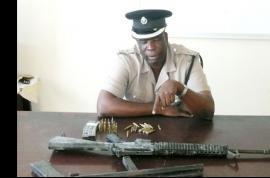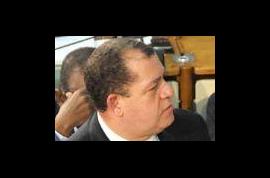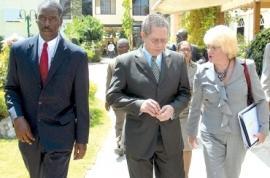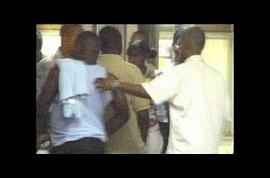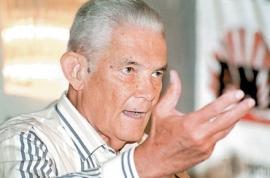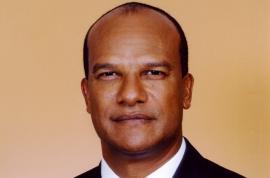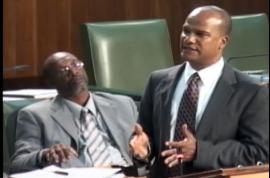Two and a half years into its term, an incisive midterm assessment of the Bruce Golding-led government’s performance in the area of national security reveals its absence of direction and resultant malfunctions.
Unequivocally, the Golding administration’s performance in the area of national security can only be described as a colossal failure. Murders have increased from 1,583 in year 2007 to a record 1,680 in year 2009. For the first quarter of 2010 (up to March 28), the murder rate has increased by a shocking 17 per cent relative to the same period in the record year of 2009. It has moved from 338 to 395 for an additional 57 (or about five per week) lives lost this year. Major crimes have increased by 59 per cent over two years, from 7,444 in 2007 to 11,801 in 2009. For the first quarter of 2010, major crimes continue to grow by 5.5 per cent. There has been no coherent or consistent national security policy articulated or pursued by the administration since coming to office, and the high turnover of policy and operational leadership has either contributed to or, at the very least, compounded the problem.
The statistics present one pillar of analysis. The labour and industrial relations issues affecting the national security portfolio provide another snapshot of malfunction. In less than three years, there have already been three ministers, three permanent secretaries, three commissioners of police, and three commissioners of corrections. Additionally, at present, the ministry has so many actors that it could be mistaken for Hollywood. The positions of commissioner of police, commissioner of corrections, permanent secretary and chief technical director all have ‘acting’ incumbents. The issues to do with salaries and condition of employment of the security officers remain tenuous. These circumstances are all due to failures in management.
The performance of the minister of national security at the recent Standing Finance Committee symbolised the Government’s failures in this area. The minister was unable to give the customary overview of the ministry’s budget, suggesting that it was not a reflection of policy priorities but merely a bookkeeping exercise. In response to questions, neither he nor his team could provide any credible explanation to dramatic changes in budgetary allocations for various departments. This was understandable last year when Senator Nelson had just been appointed to the portfolio, but certainly is inexcusable one year later.
Where is the National Security Policy?
To the extent that a policy on national security can be discerned from the actions of the Golding administration, it appears to be a continuation of the failed, get-tough-crime-fighting approaches involving the formation and deployment of heavily armed squads of police who have, on numerous occasions, been implicated in gross violations of citizens’ rights.
Up to March 21, police fatal shootings (63) are up by 91 per cent relative to 2009, and the ratio of fatal shootings to arrests have similarly almost doubled, indicating a greater use of lethal force by the police. The proposed anti-crime bills target legislative curtailment of rights, such as prolonged detention through restriction of access to bail rather than strengthening the community policing initiatives. For example, the community safety and security branch was allocated $176 million in the 2010-2011 estimates versus the $324 million in the estimates for 2009-2010.
Frightening Realities
The JLP government’s apparent determination to avoid the extradition of Christopher ‘Dudus’ Coke to the United States is the most clear and corrosive signal to the society that the Government not only lacks the political will to combat organised crime, especially at the crime/politics nexus, but also that it places the importance of organised criminal gangs to its political machinery above the welfare of the rest of Jamaican society. The consequences of this are already becoming apparent and will only worsen with time if they continue on the same path.
The economic consequences of the revocation of visas of businessmen and entertainers, together with other likely future restrictions, will have a serious negative impact on tourism, remittances, and the broader economy.
The morale of the good police and military intelligence officers has been seriously weakened. They have been working on this extradition for many years and have been pilloried, rather than congratulated, for their efforts by members of the JLP administration. In contrast, the organised criminal gangs, particularly those with JLP affiliations, have now become emboldened as is suggested by the spiralling crime statistics.
What the PNP would do differently
The People’s National Party is committed to making Jamaica a safe and just society and our philosophical foundation – the Progressive Agenda – declares that crime control efforts must be disciplined by the rule of law, due process, and respect for individual rights and human dignity. This approach is central to our party’s democratic values; ones we continue to stand for. Of the raft of policy proposals being developed by the PNP, there are three areas the PNP would place its emphasis on.
Governance Arrangements
The Opposition recommended that the Government consider the establishment of an entirely new statutory body – currently being called the Police Management Authority (PMA) – and the Act to establish the PMA will contain all the matters relating to management and accountability of the police. This would, of course, require other legislative measures to transfer the functions of the Police Services Commission and the Police Civilian Oversight Authority to the new body. This proposal, if successfully implemented, would represent, perhaps, the most significant development in the evolution of our policing since the 19th century.
Engendering Trust
This dysfunctional feature of our culture has evolved over a long time and will take some time to turn around. However, it can be reversed. The police force and the political leadership must be in the vanguard of the change process. A paradigm shift must first occur in the emphasis of our policing activity to a focus on the creation of a police culture that will nurture and value a true partnership with the community and building a police leadership that embraces decentralisation of authority and full accountability.
In this new paradigm, community policing will be the core philosophy of the standard operating departments of the police and only a minority of police personnel will be highly trained for a tiered response capability. They would be supported by the Jamaica Defence Force (JDF) in these operations. Central to the PNP’s approach would be the understanding that effective crime reduction will only be sustained if it is based on the trust, confidence, and legitimacy of the police force.
Targeting Organised Crime
A deliberate policy of local law enforcement during the last PNP administration was to work co-operatively with international law enforcement partners to target transnational criminal dons for extradition to jurisdictions that have stronger law enforcement capacity than Jamaica. This does not represent a diminution of Jamaica’s sovereignty but a practical acknowledgement of the enormous resources available to the transnational criminals and our political commitment to getting them convicted by whatever legal means available. We will return to this policy.
Because of the difficulty of getting witnesses to testify against organised criminals, technology needs to be employed more effectively in the collection and analysis of evidence (as well as more generally in the management of the police). Available technology can be employed in areas such as collection and analysis of DNA, computerised face identification programmes coupled with increased CCTV surveillance, and patrol vehicles with computers that have instant access to stored data. These are just some areas a PNP government would implement.
We are increasingly aware that Jamaicans of all walks of life are frightened, worried and anxious. Crippling levels of fear, trepidation, insecurity and worry have compound the erosion of the quality of life experienced by the people of Jamaica, given the last two and a half years of this government’s economic policy. Halfway through its term, the Government has had enough time to proffer a national security policy, regulate the administrative issues in the ministry, its agencies and affiliates, raise the morale of the security forces and offer the people of Jamaica some semblance of order. Jamaica demands no less.
Peter Bunting
PNP General Secretary and Opposition Spokesman on National Security
Source: The Sunday Gleaner, “In Focus”, April 11, 2010
http://www.jamaica-gleaner.com/gleaner/20100411/focus/focus7.html


